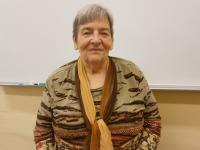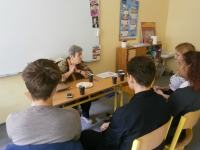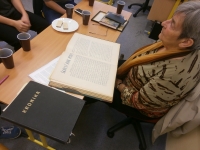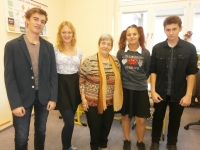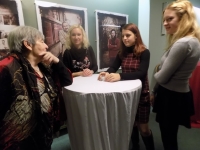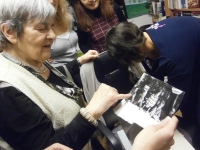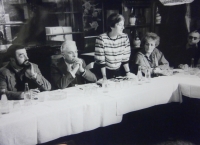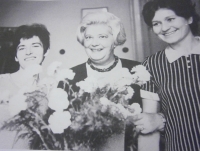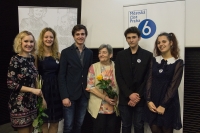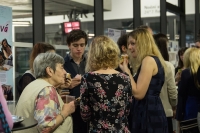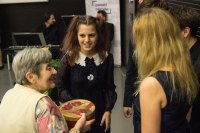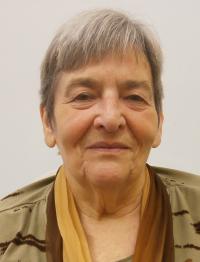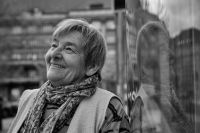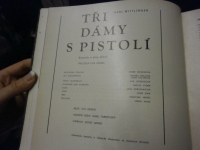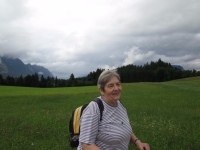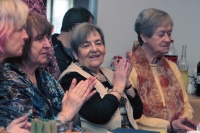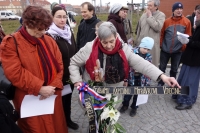"Well, and I met him once, I think it was 1987 or something like that. There was one... Edward Albee came, the playwright. I went to see him, but I forgot my invitation, I was late, and they wouldn't let me in. Because to keep people from coming... and Havel went there and they wouldn't let him go either. So we stayed in the courtyard, there in the Theatre Institute, and I talked to him for a while, and what happened, within a week I was followed by a cop. So they took a picture of me, found me, and somebody was following me. And he said, 'We would like you to tell us...' - I was invited to these cocktails at the Americans or the English, so I used to go there sometimes when there were visitors and so on. 'We would like you, when you go on these visits, to tell us who comes there from the dissidents', because it was already the Gorbachev years and these people were already coming. Before that... not before that, before that they didn't dare. But that's why I went there, because I wasn't that interesting. I used to be... I went to London through the British Council, so they knew about me. Well, who would they invite? So they invited me. And then they went there. Jarda Kořán went there, Havel went there, and various people, and once we were at a cocktail party at the cultural attaché's flat in Náměstí Míru. It was a big flat, several rooms, and now it was full of people, and I was there with my husband, with my second husband, and I said, 'Hey, there is Havel coming, let's go somewhere else so that someone won't report me for not reporting him. And we'll go over there to Zdeněk Urbánek's.' He was also a Chartist, but he was our collaborator. 'Let's go to Zdeněk's.' So we went to him and he was standing with a man with glasses and he said, 'Let me introduce you. This is Jiří Hájek, the current spokesman for the Charter."

